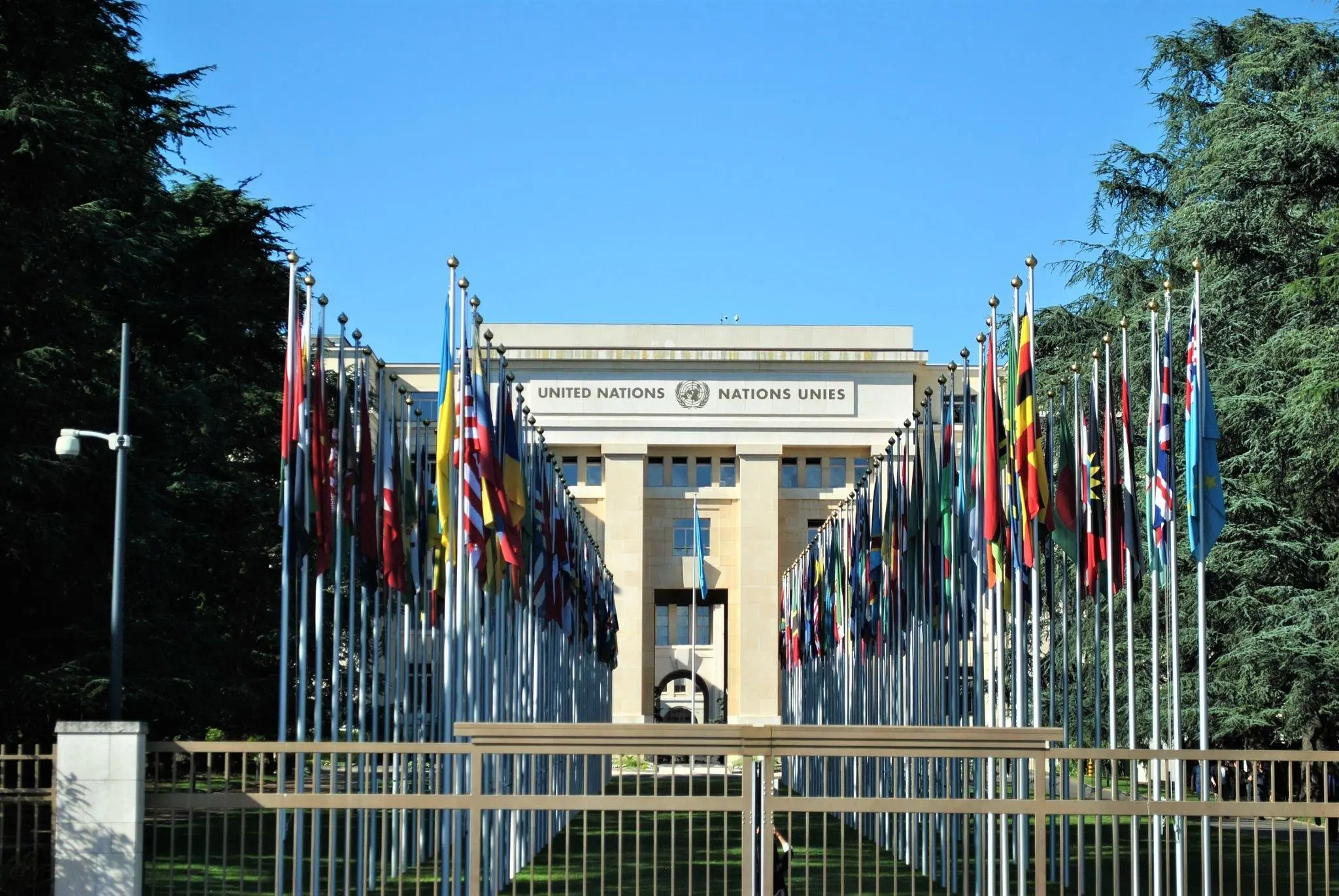Dear leaders, negotiators, and decision makers,
This year, "Unite-Act-Deliver" is the slogan of COP28, a pivotal event in the international endeavour to combat climate change. The increasing number of climate disasters in 2023, wherein severe weather phenomena have wreaked devastation on a global scale, shows the urgency of the need to act. The United States, Hong Kong, Greece, Libya, Turkey, Bulgaria, Spain, Taiwan, Pakistan and China were all affected by hurricanes, storms, droughts, and flooding. The floods that struck Libya and Pakistan were particularly devastating, resulting in substantial destruction of infrastructure and loss of life, and increasing sea levels and heat surges that have been felt globally have also occurred.
Furthermore, the adverse effects of climate change on food and water security on a global scale have impeded progress towards attaining the Sustainable Development Goals. In particular, food systems are accountable for one-third of worldwide green gas emissions and have slowed agricultural productivity for the past five years which entails the transformation of food systems to achieve net-zero emissions.
COP28 also comes at a time of unprecedented regional wars on different fronts which cannot entirely be separated from the issue of climate justice. War exerts an adverse environmental impact on climate, as exemplified by the catastrophic environmental devastation and human suffering caused by military operations in countries such as Palestine and Ukraine. A recent report on the Russia Ukraine War estimates that in the first year alone, approximately 120 million metric tonnes of greenhouse gas emissions were produced showing substantial impact on climate change. Continued destruction from warfare and the efforts will also compound these emissions.
Al Habtoor Research Centre joins global bodies such as the International Panel on Climate Change, Greenpeace, World Wildlife Fund, Climate Action Network and Climate Policy Initiative in calling on leaders to take comprehensive and equitable measures to tackle climate change and its repercussions on natural and human systems. With this goal we emphasize the urgency of adopting a serious political will to address the following critical issues:
Enhancing Adaptation Strategies Through Maximizing the Role of the Adaptation Fund
It is imperative that the COP28 prioritize the enhancement of adaptation strategies in order to safeguard ecosystems and vulnerable communities against the detrimental impacts of climate change. This includes enhancing early warning systems, constructing resilient infrastructure, and safeguarding biodiversity. This can be accomplished through the Adaptation Fund, aiding adaptation efforts in developing countries, requires improvements in several areas:
-
- The expansion of the Adaptation Fund’s projects scope to address a more extensive array of consequences stemming from climate change, such as those affecting infrastructure, human health, and livelihoods. In addition, the fund should prioritize initiatives that integrate adaptation with other sectors of development and foster climate-resilient development.
- Supporting initiatives that primarily benefit the most vulnerable communities should be given precedence, while also increasing assistance for the development of local institutions and communities’ capabilities to design, implement, and oversee adaptation projects. This includes granting access to information and resources, training, and technical support.
- Strengthen monitoring and evaluation systems to ensure that initiatives are providing tangible benefits to communities and accomplishing their intended results.
- Increased financial resources to address the escalating need for adaptation in developing countries; this can be achieved by soliciting greater contributions from established countries and investigating innovative financing mechanisms.
Mobilizing Climate Finance Through the Loss and Damage Fund
A major outcome of COP27 was the establishment of the Loss and Damage Fund to aid severely affected developing nations. COP28’s focus should be operationalizing this fund for effectiveness, equity, and responsiveness to climate change impacts. Key considerations include:
-
- Transparent governance to ensure clarity, transparency, and inclusivity for developing countries and marginalized communities in decision-making and resource allocation.
- Establish clear eligibility standards that define criteria based on vulnerability, financial need, and nature of loss for qualifying countries and communities.
- Establish strategies to allocate financial resources to developing nations via novel financing mechanisms such as direct grants, loans, insurance products, or similar initiatives.
- Establish a resilient, adaptable monitoring system ensuring resource efficiency and responsiveness to evolving needs.
- Involve diverse stakeholders, including civil society organizations, developing nations, and climate finance experts to address the needs of highly impacted individuals beyond existing mechanisms.
Transforming Food Systems
Climate change impacts both the availability and accessibility of food posing a substantial risk to global food security. Agricultural production is being disrupted by extreme weather, rising temperatures, and shifting precipitation patterns, resulting in increased food insecurity, price volatility, and food shortages. Consequently, the focus of COP28 be should the transformation of agricultural systems through:
-
- Incorporating food system actions into global climate agreements (e.g., the Sharm el-Sheikh Joint Work and National Adaptation Plans), endorse declarations such as the “Emirates Declaration on Resilient Food Systems, Sustainable Agriculture and Climate Action”, and sign agreements encouraging countries to prioritise food systems in their climate strategies.
- A new report by the Institute for Environment and Development shows that billions of dollars are spent by small-scale farmers globally to adapt to climate change because of the inaccessibility to climate finance. Producing one third of the world’s food, smallholder farmers are the backbone of global food security and must be supported to ensure stability and resilience worldwide. We recommend the development of actionable plans to remedy the existing flaws of current climate adaptation financing mechanisms before or in addition to establishing new mechanisms.
Strengthening Stakeholders’ Involvement
While consensus building is necessary to reach agreements within the context of time-constrained negotiations, this should not come at the cost of the meaningful inclusion of the perspectives of those most affected by climate change:
-
- We emphasise the importance of going beyond stakeholder “engagement” to enabling different stakeholders access to decision making processes. This includes the participation of different interest groups, not only country-level participation.
A stakeholder-centric perspective is essential for one climate issue in particular: the phasing out of fossil fuels. Leaders of COP28 negotiations must use the momentum and the presence of all stakeholders to negotiate potential scenarios for the phasing out of fossil fuels. Although some leaders are beginning to acknowledge the inevitable need to phase out fossil fuels there is still a clear hesitation to discuss the process in practical terms. This COP28 must take advantage of the presence of diverse stakeholders to different practical and viable pathways towards a fossil fuel phase out and set clear deadlines.
It is worth noting that climate change is an intricate and diverse issue that is producing an extensive array of consequences on a global scale. Adapting to and mitigating the effects of climate change is crucial for safeguarding the economy, human health, and the environment. This is especially true in light of the alarming situation described in a recent report by the Intergovernmental Panel on Climate Change, which indicates that the Earth is approaching a critical threshold in global warming within the next decade. We are likely to surpass a 1.5-degree Celsius increase in average global temperatures if we continue to burn fossil fuels at the current rate. Beyond this threshold, managing catastrophic consequences such as extreme heat waves, floods, droughts, crop failures, and species extinction becomes considerably more difficult.
Finally, we urge leaders to not take for granted the importance of maintaining accountability especially towards youth, to who we owe a sustainable future. Global youth movements have demonstrated their capacity to disrupt businesses and the flow of life in order to pressure leaders to take actions on issues that have been neglected due to political and economic interests as well as a status quo that arguably relies on a passive neutrality of citizens. This trend is visible both within the climate movement, with the emergence of new disruptive tactics among youth activists, as well as within social justice movements which are more frequently leveraging transnational pressure, such as the global movement for Palestinian liberation. Protestors calling for a ceasefire in Gaza and an end to the Israeli occupation have disrupted public transportation, shut down the offices of arms manufacturers, delayed weapon shipments, barricaded themselves on university campuses and occupied parliament buildings.
At the moment COP conferences are the only available mechanism for the international community to reach agreements on climate action goals. Failure to make more serious commitments to climate goals and set clear action plans to tackle the most persistent barriers to progress could result in more serious efforts by civil society organisations and countries most affected by climate change to delegitimize the UNFCCC and seek alternative means to achieve reparations and climate justice, a shift that would undermine climate action and potentially destabilise global markets and food security.
Al Habtoor Research Centre




















Comments